10th Reel China Biennial at NYU
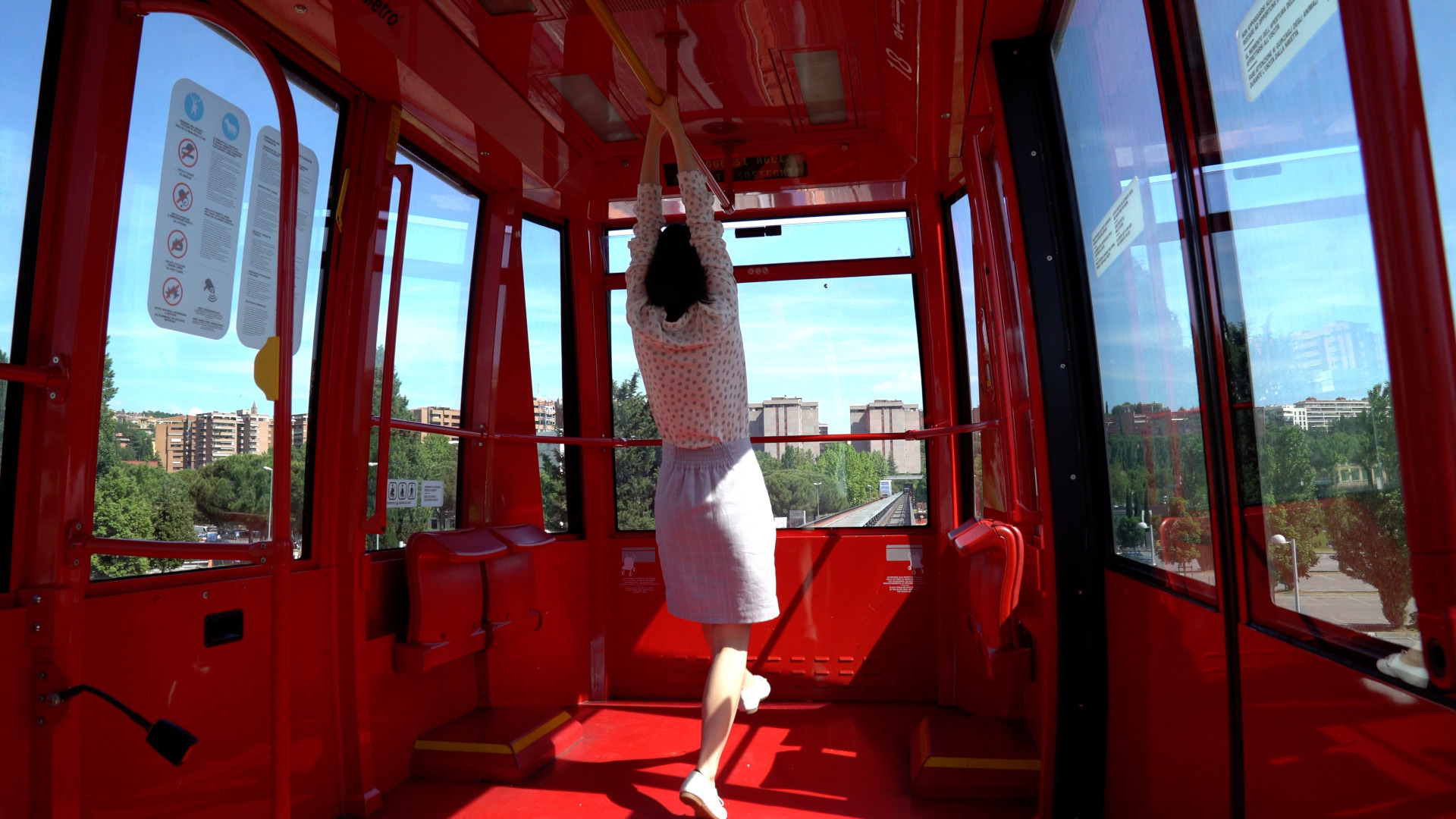
10th Reel China Biennial at NYU
Oct. 28-30, 2022
In this first gathering since the pandemic, we celebrate the two-decade journey of the Reel China Biennial, as well as the indomitable spirit and creative expression of independent filmmakers within and outside China. This milestone edition of Reel China brings back to NYC innovative and bold works by veteran filmmakers in the PRC along with diaspora and emerging Sinophone voices. From a frenetic Beijing on the eve of the Olympics to the searching for lost homes and new visions in internal and external exile, there are narrative and visual surprises. The program of short and long films, fiction and non-fiction in analog and digital formats, bears sharp and delicate witness to the tumultuous changes in China and the world in the 21st century.
Co-presented by
The Asian Film & Media Initiative, Department of Cinema Studies
The Center for Religion and Media
Co-sponsored by the Center for Media, Culture and History
Co-organized by
Zhen Zhang, Director of Asian Film Media Initiative, NYU
Angela Zito, Director of the Center for Religion and Media, NYU
Cristina Cajulis, Events Coordinator, Cinema Studies Department, Tisch School of the Arts, NYU
Free and open to the public. RSVP required. NYU ID and Violet Go pass OR proof of vaccination and approved campus access needed for entry. Absolutely no exceptions. RSVPs must be received by Wednesday, October 19, 2022.
Preferred seating on a first come, first served basis. Plan to arrive early.
Please see NYU's current COVID-related guidelines.
Please note: RSVP for Friday includes all screenings on 10/28. Saturday 10/29 and Sunday 10/30 you must RSVP for each screening you plan to attend. Schedule below.
Image credit: No Desire to Hide (Zhu Rikun, 2021)
See below for full program and filmmaker bios.
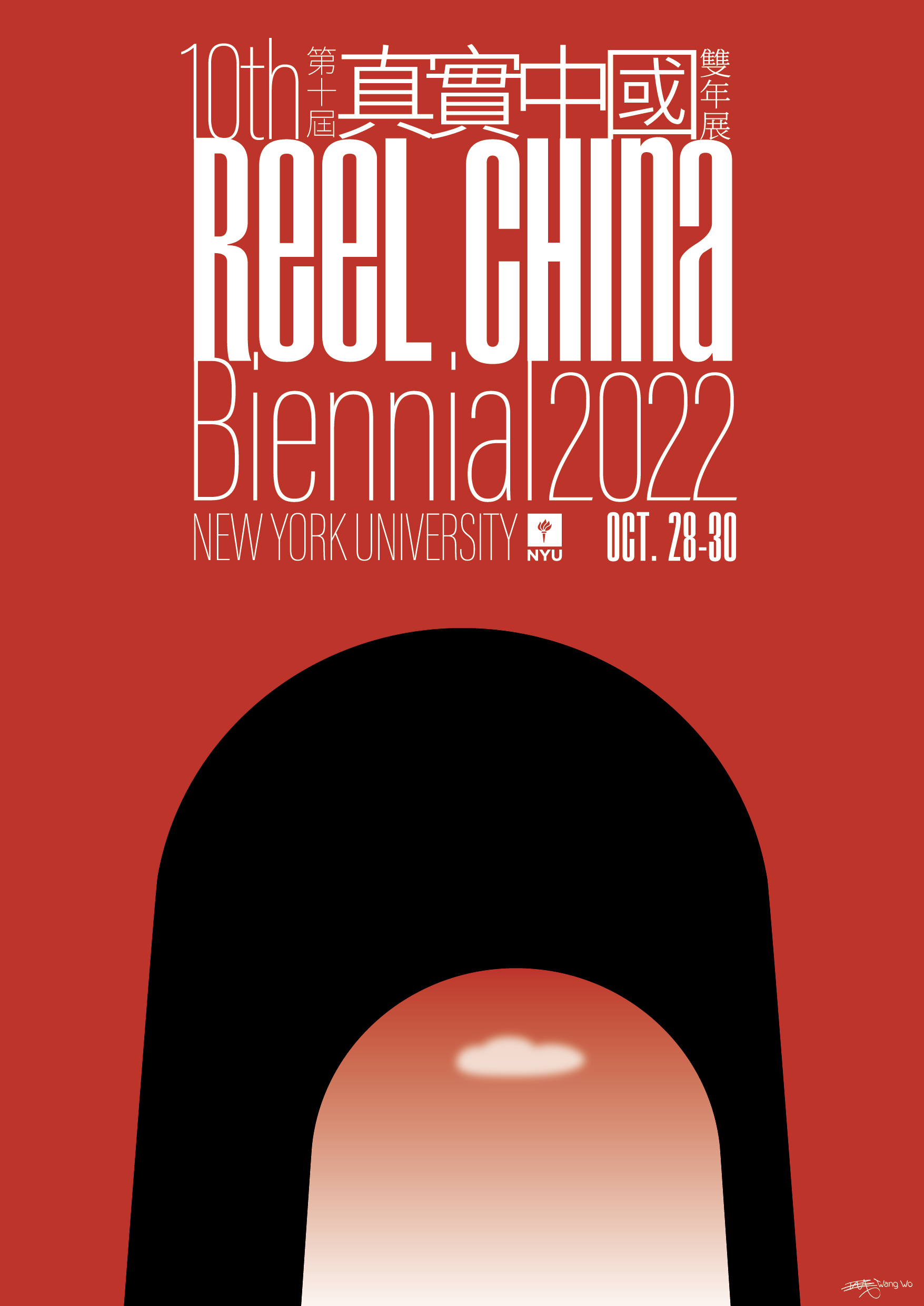
Poster design by Wang Wo
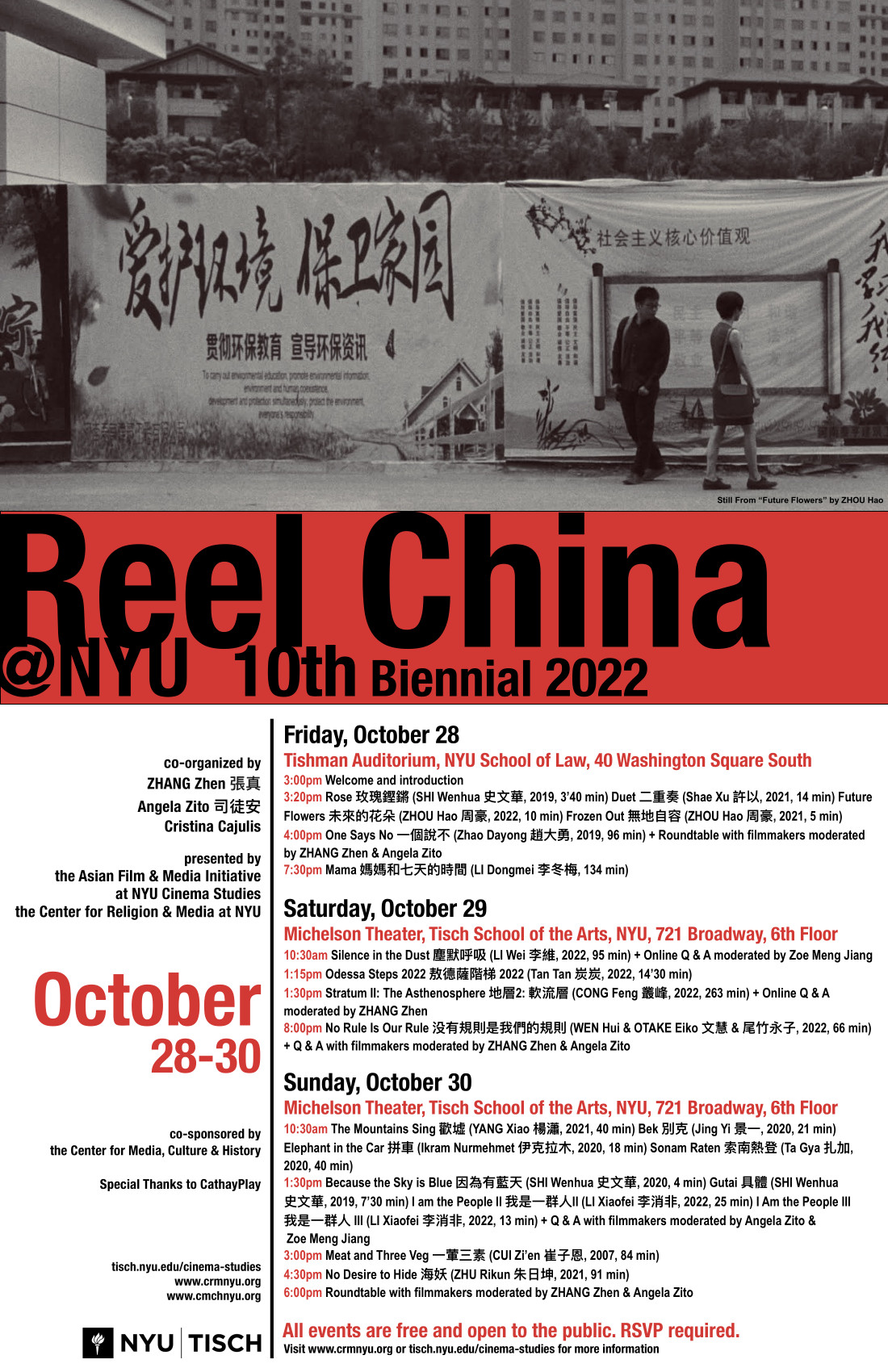
Program for 10th Reel China Biennial
Friday Oct. 28 (The Tishman Auditorium, NYU School of Law, 40 Washington Square South)
3pm Welcome and introduction
3:20pm
Rose玫瑰鏗鏘 (Shi Wenhua, 2019, 3’40 min.)
Duet 二重奏 (Shae Xu, 2021, 14 min.)
Future Flowers 未來的花朵 (Zhou Hao, 2022, 10 min.)
Frozen Out 無地自容 (Zhou Hao, 2021, 5 min.)
4pm
One Says No一个說不 (Zhao Dayong, 2019, 96 min.)
Roundtable with filmmakers moderated by Zhen Zhang & Angela Zito
7:30pm
Mama 媽媽和七天的時間 (Li Dongmei, 134min.)
Saturday Oct. 29 (Michelson Theater, Tisch School of the Arts, 721 Broadway, 6th Floor)
10:30am
Silence in the Dust 塵默呼吸 (Li Wei, 2022, 95 min.)
Online Q & A moderated by Zoe Meng Jiang
1:15pm
Odessa Steps 2022 敖德萨阶梯2022 (Tan Tan, 2022, 14’30 min.)
1:30pm
Stratum II: The Asthenosphere地层2: 软流层 (Cong Feng, 2022, 263 min.)
Online Q & A moderated by Zhen Zhang
8:00pm
No Rule Is Our Rule 没有規則是我們的規則 (Wen Hui & Eiko Otake, 2022, 66 min.)
Q & A with filmmakers moderated by Zhen Zhang and Angela Zito
[Due to unforeseen circumstances, this screening is canceled. We hope to show it with the filmmakers in attendance in the early spring of 2023.]
Sunday Oct. 30 (Michelson Theater, Tisch School of the Arts, 721 Broadway, 6th Floor)
10:30am
The Mountains Sing 歡墟 (Yang Xiao, 2021, 40 min.)
Bek 別克 (Jing Yi, 2020, 21 min)
Elephant in the Car 拼車 (Ikram Nurmehmet, 2020, 18 min.)
Sonam Raten 索南熱登 (Ta Gya, 2020, 40 min.)
1:30pm
Because the Sky is Blue 因為有藍天 (Shi Wenhua, 2020, 4 min.)
Gutai 具體 (Shi Wenhua, 2019, 7’30 min.)
I am the People II 我是一群人II (Li Xiaofei, 2022, 25 min.)
I Am the People III 我是一群人 III (Li Xiaofei, 2022,13 min.)
Q & A with filmmakers moderated by Angela Zito & Zoe Meng Jiang
3:00pm
Meat and Three Veg 一葷三素 (Cui zi’en, 2007, 84 min)
4:30pm
No Desire to Hide 海妖 (Zhu Rikun, 2021, 91min.)
6-7pm
Roundtable with filmmakers moderated by Zhen Zhang & Angela Zito
End
Friday Oct. 28 (The Tishman Auditorium, NYU Law School, 40 Washington Sq. South)
3pm Welcome and introduction
3:20pm
Rose玫瑰鏗鏘 (Shi Wenhua 史文華, 2019, 3’40 min.)
A newly planted rose grows widely through iron fence, this short film explores the perception of the relationship between foreground and background. The process of editing pays tribute to the optical toy, “A Bird in a Cage,” from the pre-cinema period.
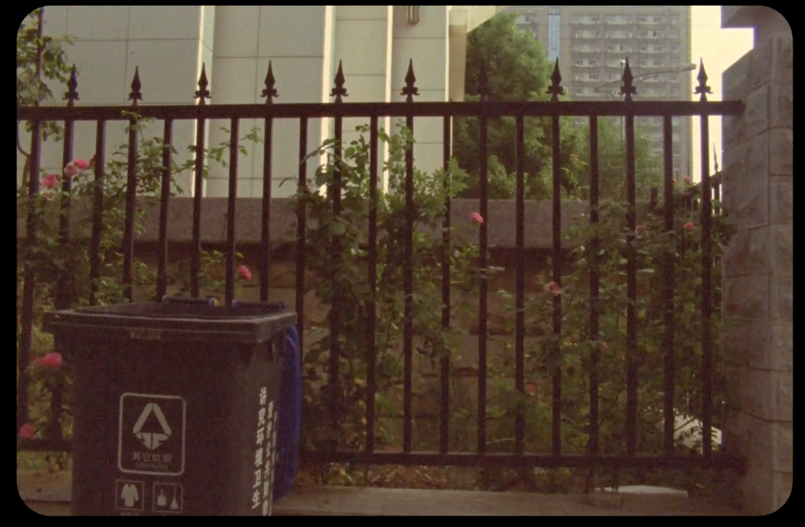
Rose玫瑰鏗鏘 (Shi Wenhua 史文華)
Duet 二重奏 (Shae Xu 許以, 2021, 14 min.)
An unspoken romance inevitably resurfaces when a high school music teacher meets an old colleague again and decides to perform together for the first time, after having long drifted apart, as piano duet partners. (DGA’s 2020 Student Film Awards for Outstanding Directorial Achievement in Women’s category.)
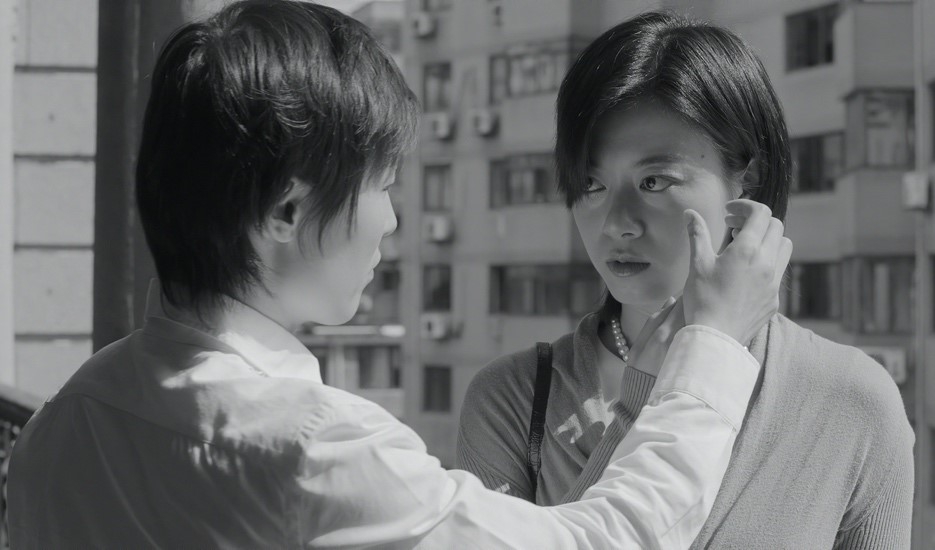
Duet 二重奏
Future Flowers 未來的花朵 (Zhou Hao 周豪, 2022, 10 min.)
Appearing to be a couple, a woman and man reside together but have entirely separate lives. Even so, their schedules are attuned to an agenda that tries to guide them toward a specific goal.
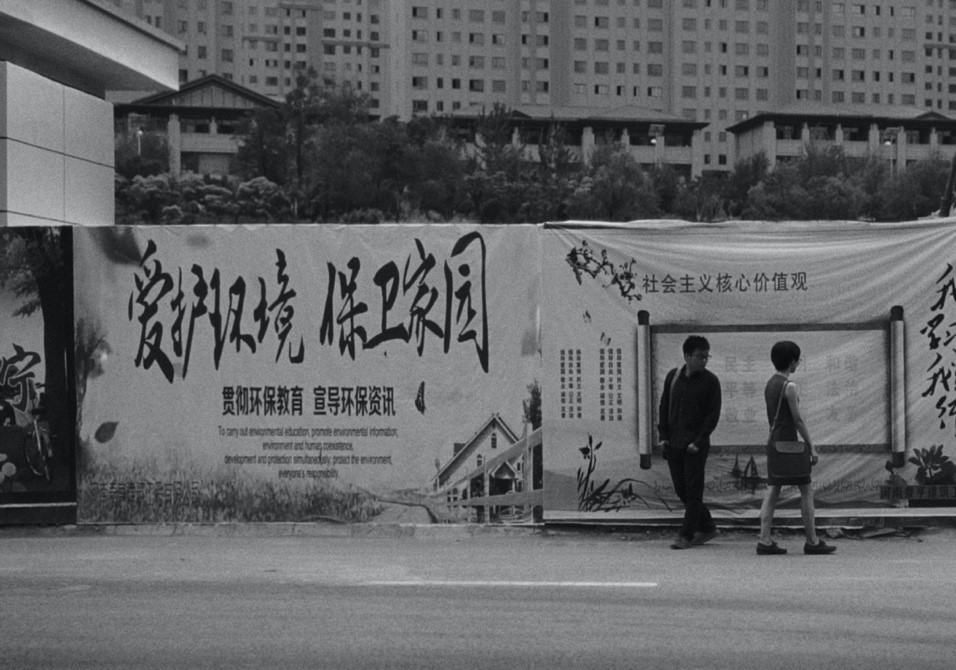
Future Flowers 未來的花朵
Frozen Out 無地自容 (Zhou Hao 周豪, 2021, 5 min.)
An immigrant artist retreats to frozen prairies and forests, hoping to avoid the anxieties of dislocation and find a meaningful story. Delivered as a letter to the protagonist’s sister in rural China, the film meditates on self-exile, identity, and fleeting ties to home and family. (Gold Medal in experimental category of the 48th Student Academy Awards, 2021.)
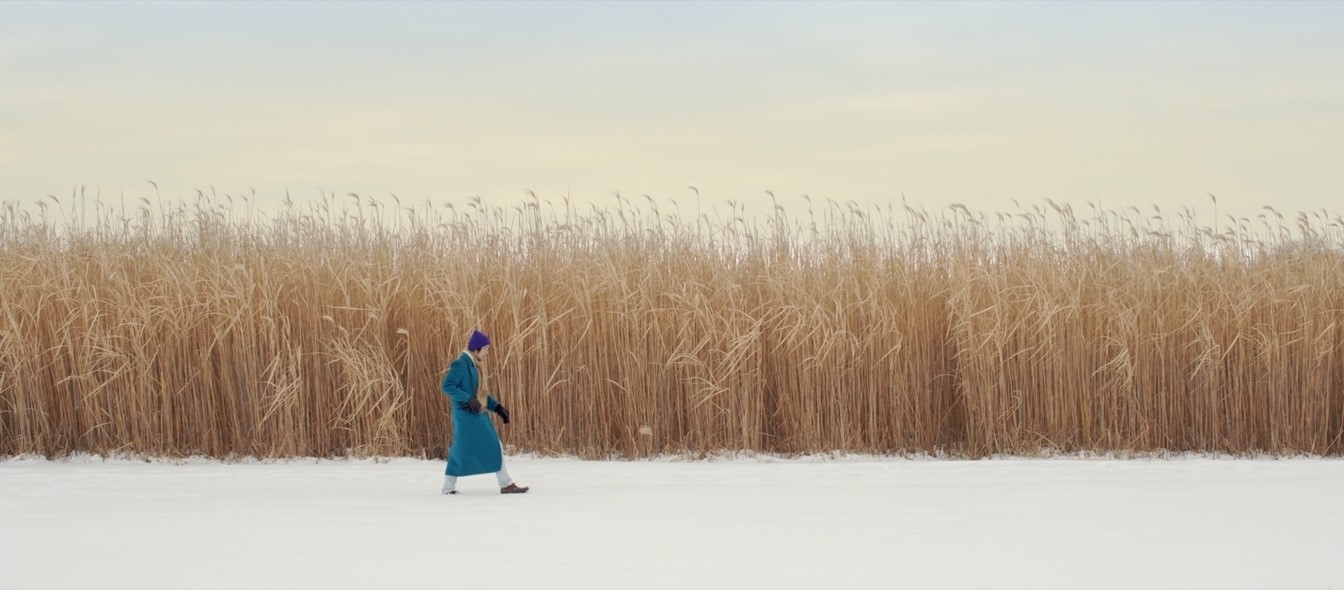
Frozen Out 無地自容
4:00pm
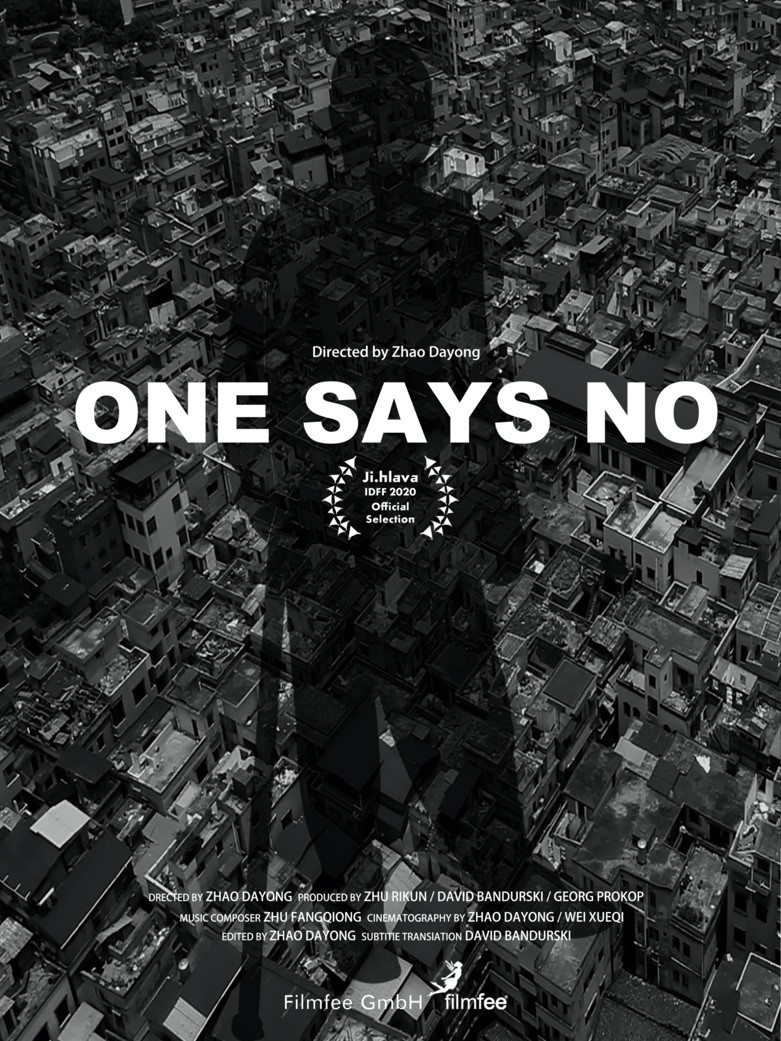
One Says No 一个說不 (Zhao Dayong 趙大勇, 2019, 96 min.)
Azhong is one of the very few people who dares to say no in the face of forced demolition. This is the place his family has lived for generations. Originally densely populated, the village is demolished almost overnight, leaving only the building housing Azhong's family left standing in the middle of a large construction site. With water and electricity cut off, how is a family of four is able to carry on? But Azhong has made his preparations…
7:30pm
Mama 媽媽和七天的時間 (Li Dongmei 李冬梅, 2020, 134 min.)
A twelve-year-old girl recounts a week in the life of a rural Chinese village during the 1990s. Li’s acclaimed debut feature narrative is based on her mother and her own experiences growing up in rural Sichuang province.
(Best Film of Fei Mu Awards at the 4th Pingyao International Film Festival; Ingmar Bergman International Debut Award at the 44th Gothenburg Film Festival.)
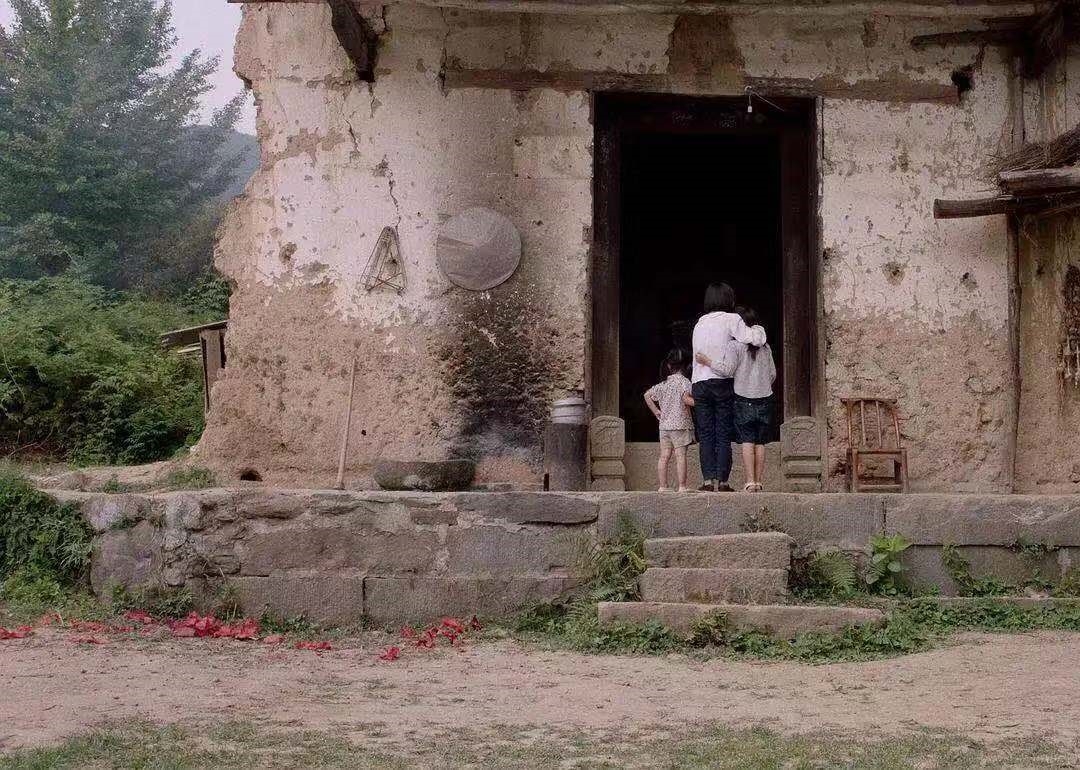
Mama 媽媽和七天的時間
Saturday Oct. 29 (Michelson Theater, Tisch School of the Arts, NYU, 721 Broadway, 6th Floor)
10:30am
Silence in the Dust 塵默呼吸 (Li Wei 李維, 2022, 95 min. Online Q & A with the filmmaker)
In the late 20th century, Dazhang, followed by his three brothers, goes to coastal Guangdong to find work. Their working conditions in the quartz powder factory prove arduous and dangerous. Several years later, Dazhang meets his wife, also working in the area, and together they have three children. When Dazhang goes to a hospital for an examination, he discovers that he suffers from advanced pneumoconiosis. Dazhang's illness depletes nearly all his family's savings and drains his wife's will to live. The only ones left in the house are the three children, ignorant of the situation, Dazhang on his sickbed, and Dazhang's aging parents. (Best Documentary Nominee, The Golden Horse Awards 2022.)
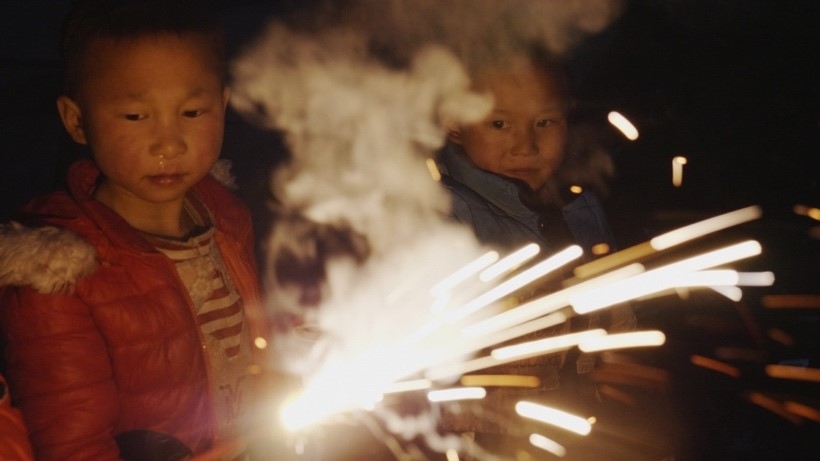
Silence in the Dust 塵默呼吸
1:15pm
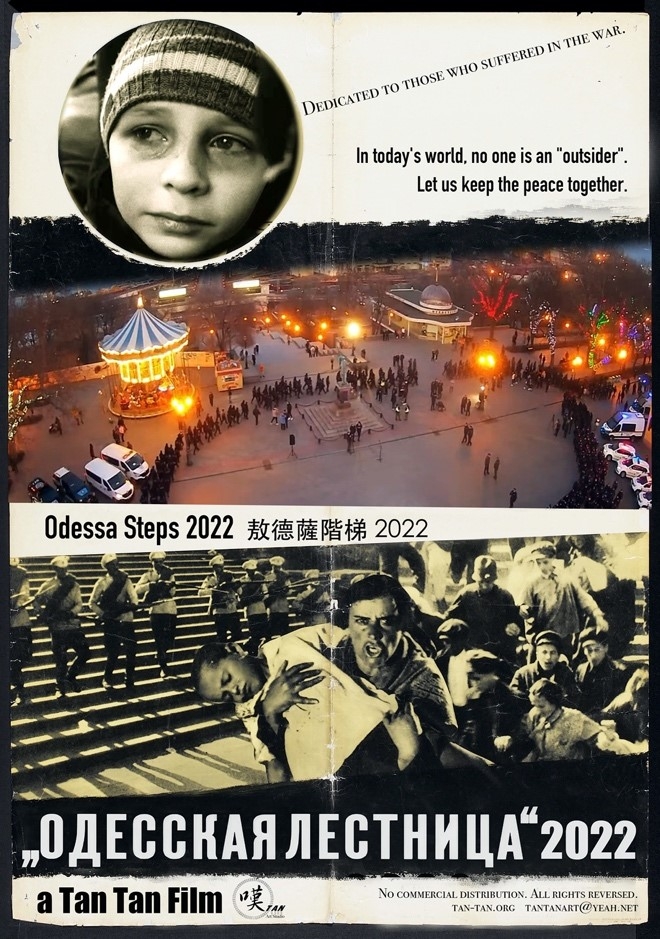
Odessa Steps 2022 敖德萨阶梯2022 (Tan Tan, 2022, 14’30 min.)
This film cross-cuts the "Odessa Steps" chapter from Sergei M. Eisenstein’s Battleship Potemkin (1925) and the actual found footage of the Russo-Ukrainian conflict in 2022. It uses a 21st-century "Montage d'Attraction" to explore the cycle of history, the contradictions of civilization, and the crisis of life. The film is dedicated to everyone who suffered in the war.
1:30pm
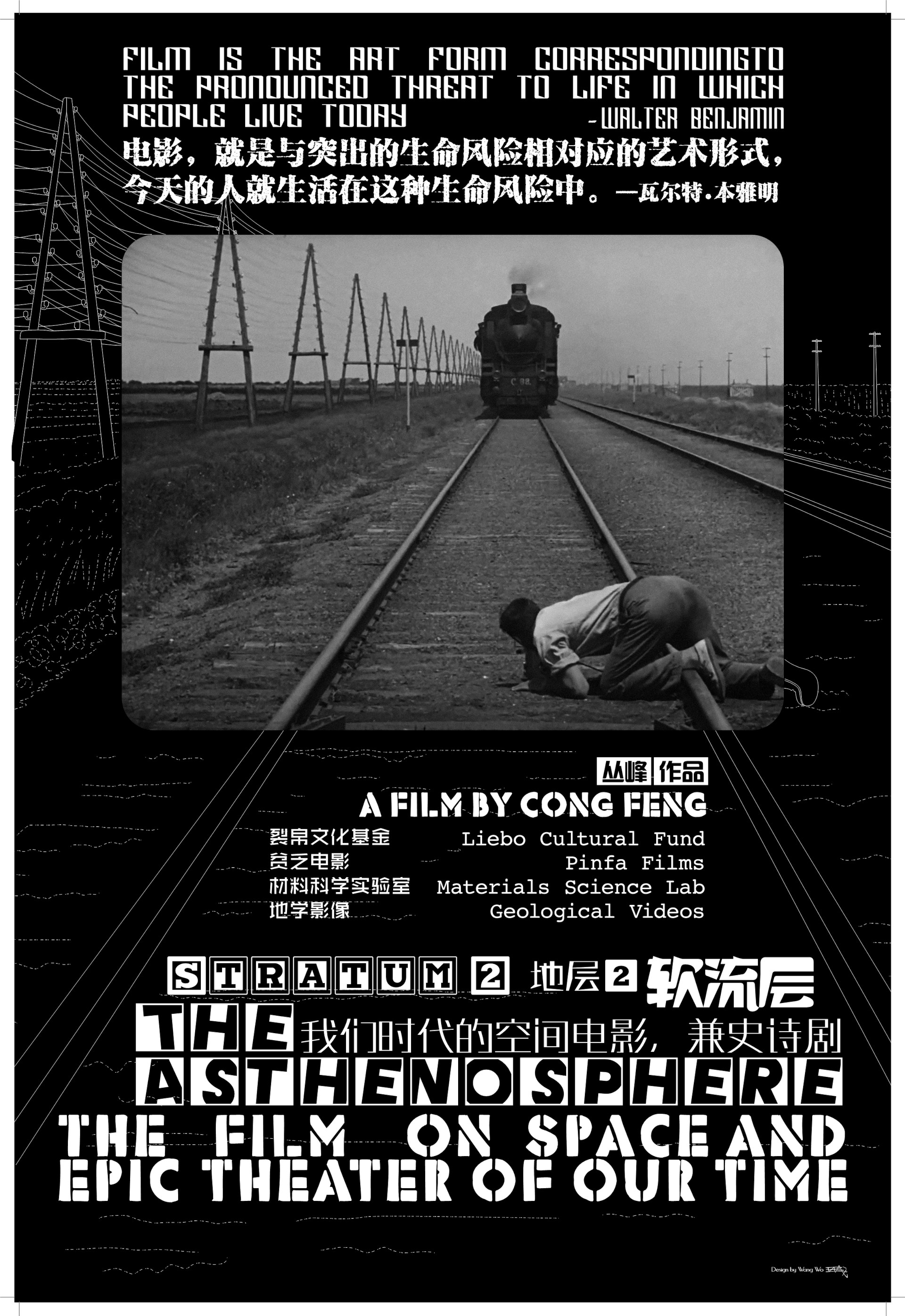
Stratum II: The Asthenosphere地层2: 软流层 (Cong Feng叢峰, 2022, 263 min. Online Q & A with the filmmaker)
This non-fiction film addresses both the spectacle and space, especially how the spectacle has caused the mutation of the (physical and phycological) space in which we reside. Hoping to be the “film on space” of our times, an epic theater, it offers general observations of the geological structure of this time. The filmmaker invents or re-invents some terms for this purpose: Archae(now)logy, Ruinology, Space bankruptcy, Theater of life—theater of cruelty—theater of spectacle, the body-film, the New Berlin Wall-Iron Curtain, “Refugees without camps,” “the Plants,” “the Ghosts,” the Asthenosphere, Dark energy... The filmmaker admits, “I have stolen a great amount of found footages/ready materials or already existing films. This ‘stealing’ is exactly the way to get connected with history and the history of film, to construct an ‘echo film.’”
8:00pm
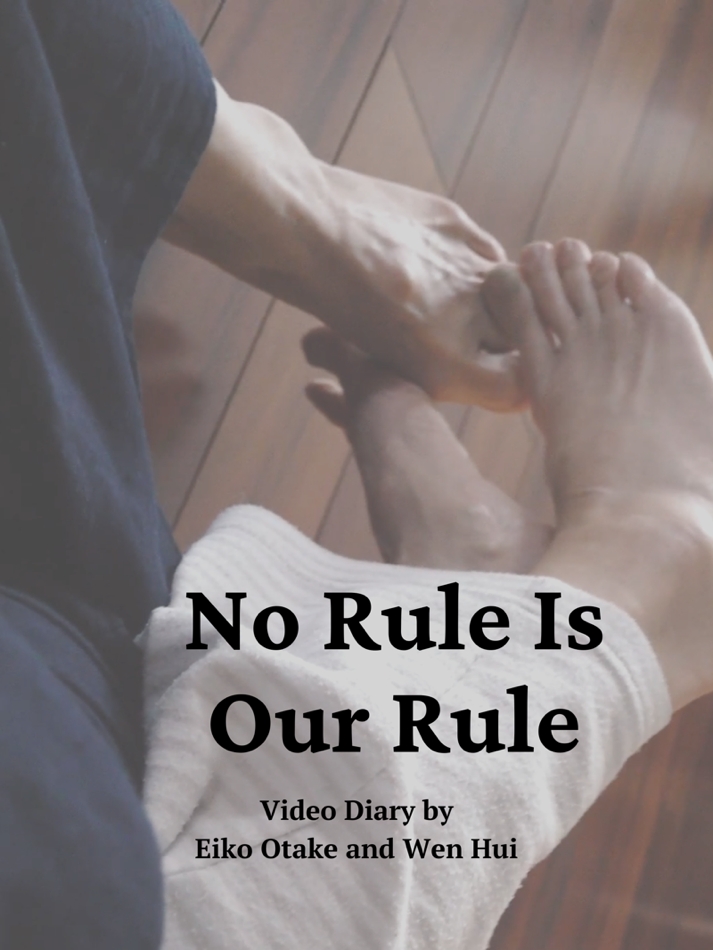
No Rule Is Our Rule 没有規則是我們的規則 (Wen Hui 文慧 & Eiko Otake 尾竹永子, 2022, 66 min.)
This film made of video diaries presents a story of friendship between two independent female artists and their body memories each willingly carry. In January 2020, New York based, interdisciplinary performing artist Eiko Otake arrived in Beijing to visit Wen Hui, a Chinese choreographer and filmmaker. Eight years apart, Eiko grew up in postwar Japan and Wen Hui during the Cultural Revolution. They planned to visit each other for a month to converse and collaborate. The surge of COVID-19 abruptly cut off Eiko's visit and the pandemic has so far made Wen's visit to the USA impossible but not the collaboration. Looking back on the video diaries they shot without a script, Eiko and Wen Hui continued their dialogue on Zoom, sharing past works that helped them form a deeper understanding of their circumstantial differences and characteristic similarities. Filmmaker Yiru Chen, once Eiko’s student at NYU, joined the team as a co-editor.
[Due to unforeseen circumstances, this screening is canceled. We hope to show it with the filmmakers in attendance in the early spring of 2023.]
Sunday Oct. 30 (Michelson Theater, Tisch School of the Arts, NYU, 721 Broadway, 6th Floor)
10:30am
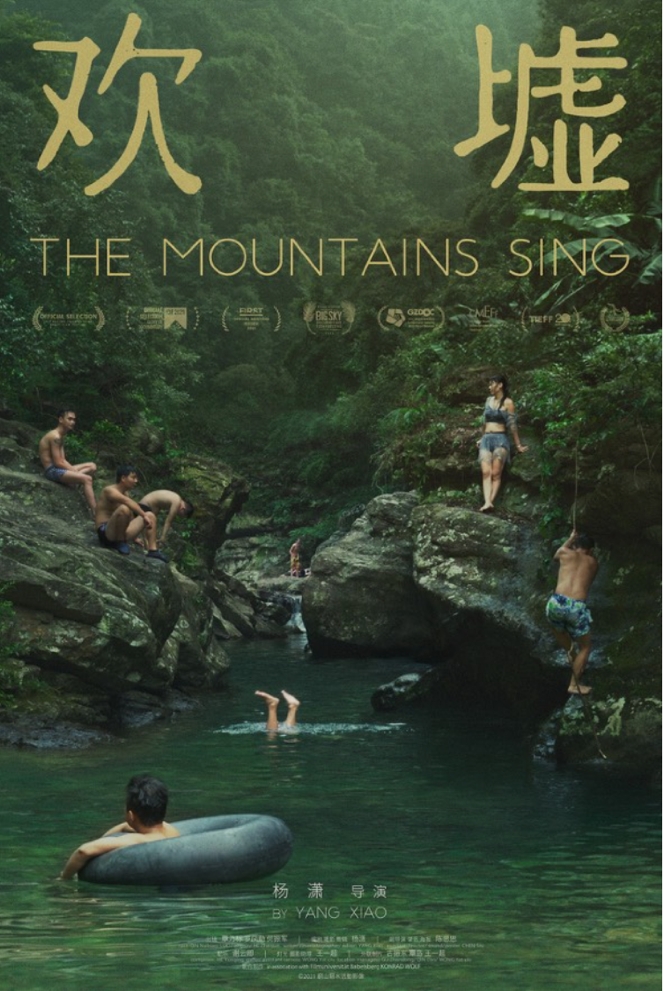
The Mountains Sing 歡墟 (Yang Xiao楊瀟, 2021, 40 min.)
“Hawfwen,” a traditional gathering that used to be popular, brings the Zhuang people together to sing folk songs. It often takes place around clan temples or under old trees. Singers are divided into male and female groups. They improvise their lyrics to sing in response to one another. Traveling along the songs in antiphonal style, the camera has found different singers and gatherings, lingering in rural areas and cities, trying to find the broken echoes of “hawfwen.” (Honorable Mention, First Film Festival, Xining; Best Director, Sinophone Ethnomusicology Film Forum, Xiamen)
Bek 別克 (Jing Yi 景一, 2020, 21 min.)
Looking for his friend Bek has failed for many years, Arsin finally gets a clue of Bek’s whereabout. He decides to return to their common hometown to find Bek, but does not expect that things are far more complicated than what he thinks and sees...
(Thanks to CathayPlay.Com)
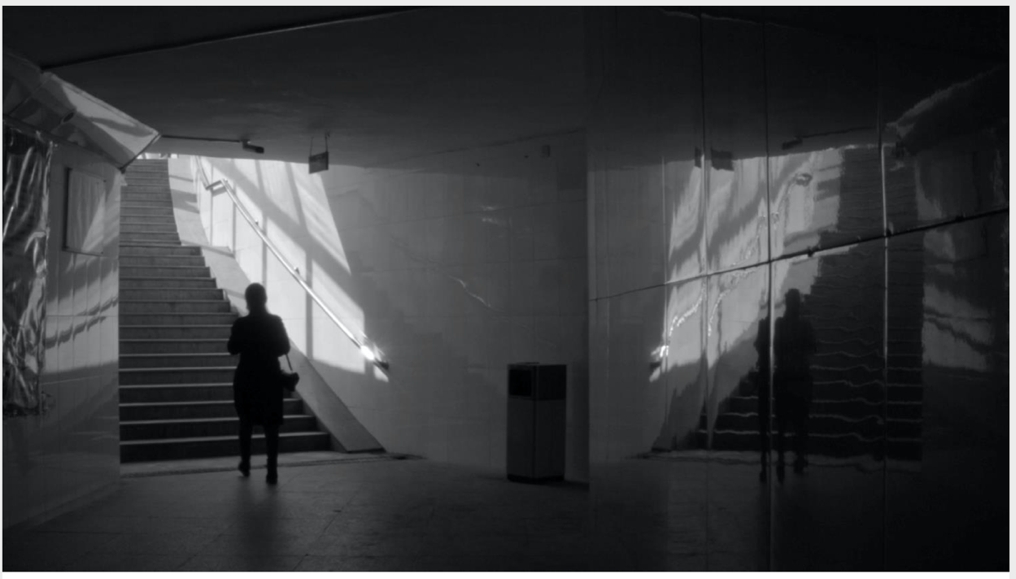
Bek 別克
Elephant in the Car 拼車 (Ikram Nurmehmet 伊克拉木 , 2020, 18 min.)
On an ordinary night in Beijing, Xiao gets off work late, she orders an Uber car- pool to go home. The driver picks up other carpoolers on the way, two Uyghur young men who live in Beijing. As soon as they get in the car, they start talking in a language that no one else understands, which makes Xiao and the driver a little bit uncomfortable...
(Thanks to CathayPlay.Com)
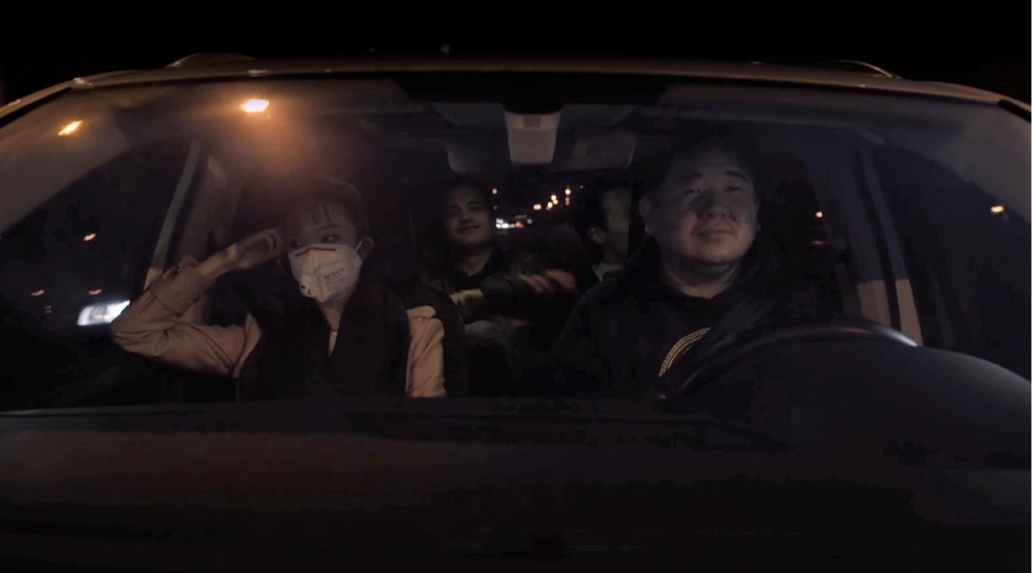
Elephant in the Car 拼車
Sonam Raten 索南熱登 (Ta Gya 扎加, 2020, 40 min.)
Sonam Raten, an ordinary old herdsman living in the pastoral area in Tibet who became a vegetarian in his twenties. He never got married. He used to live with his brother who died later. He treats domestic animals like life's best friends. Many people even think that reincarnation into his house to be a yak is the result of a good deed in his life.
(Thanks to CathayPlay.Com)
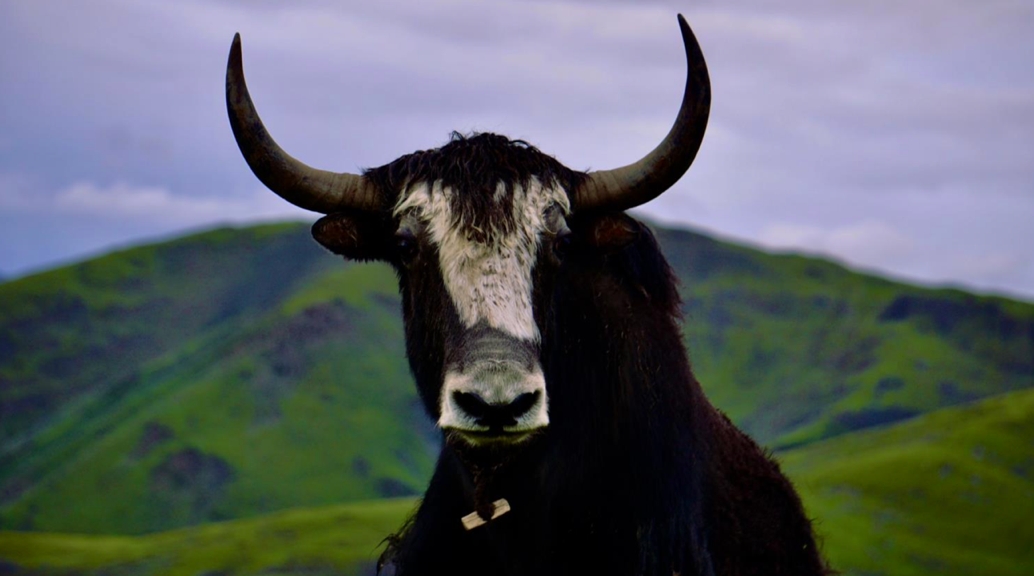
Sonam Raten 索南熱登
1:30pm
Because the Sky is Blue 因為有藍天 (Shi Wenhua 史文華, 2020, 4 min.)
Muybridge captured the galloping horse one hundred forty years ago in a brief 12 frames. The duration of today's social media video clips is similar to Muybridge's brevity. The filmmaker tries to reimagine what subject Muybridge would capture today using footage from his social media feed. Using cyanotype to reprint the individual frames to create the final short videos. The footage of diving and swimming were from friends in Wuhan (Li Juchuan and Xie Wang). The outdoor swimming seems mundane. But the particular timing of the footage has somehow carried the unspoken weight, shot when the government lifted the first city wide lockdown during 2020.

Because the Sky is Blue 因為有藍天
Gutai 具體 (Shi Wenhua 史文華, 2019, 7’30 min.)
Relying on a radical use of single frame image capture, the filmmaker examines his strange and familiar hometown, Wuhan, China, after nearly two decades. The film title comes from the postwar Japanese avant-garde artist group Gu-Tai. The kanji (Chinese) used to write “gu” means tool, measure, or a way of doing something, while “tai” means body. The film is the result of intense looking and seeing what might not be there.

Gutai 具體
I am the People II 我是一群人 (Li Xiaofei李消非, 2022, 25 min.)
This group of people, this collective, has always existed, coming and going, waxing and waning, sometimes vague and indistinct, sometimes lucidly defined. Sometimes I found that “I” became “you” and “you” became “I.” Sometimes I found that I was not myself, and neither were you. Sometimes I was “us,” and at the same time the plural “you” or maybe even “them.”
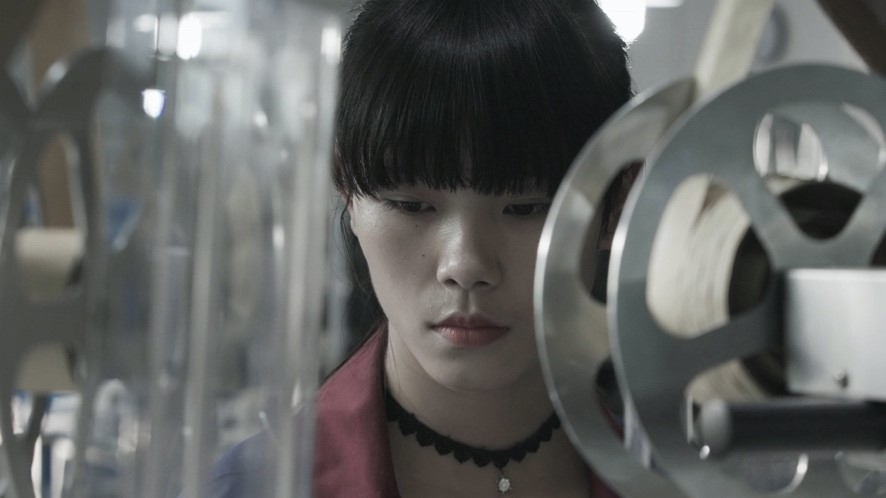
I am the People II 我是一群人
I Am the People III 我是一群人 (Li Xiaofei 李消非, 2022, 14 min.)
If we were to categorize people into two types — the “doers” and the “observers” — which camp would you fall into? We observe and are observed. We make comments and then switch roles, finding ourselves as the subject of commentary. In the chaotic ecosystem of everyday life, the mayors and officials are always concerned about production: producing culture, producing history, producing all the images which they see. The laborers, the silent and the talkative, no matter what kind of environment they find themselves in, they always use their own means to continue at their own pace, putting one foot in front of another until they have come full circle.
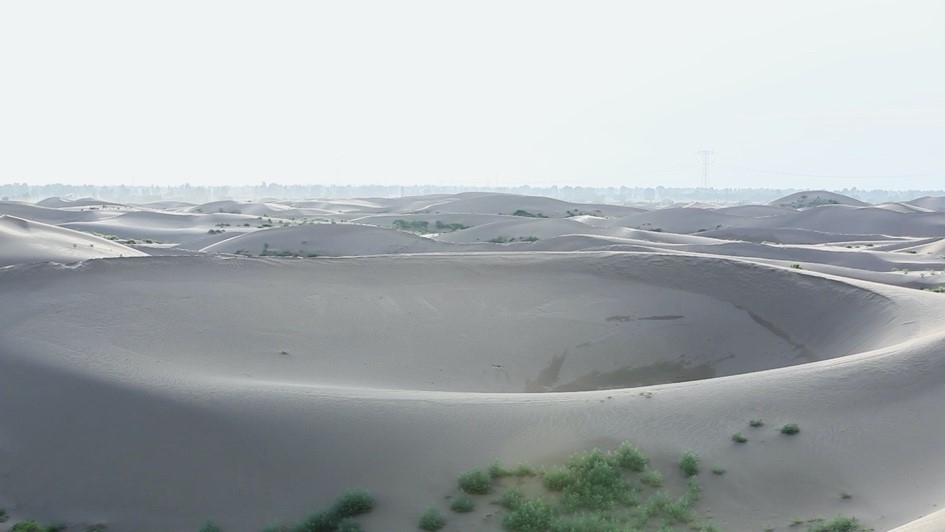
I Am the People III 我是一群人
3:00pm
Meat and Three Veg 一葷三素 (Cui zi’en 崔子恩, 2007, 84 min.)
A documentary pastiche about living in contemporary China, constituted of images of immigrant workers’ on-street KTV singing, open-air community dance parties, campus life and extracurricular activities of high school and college students, the job of killing mosquitoes done by children of immigrant workers, fragments of gay love stories, wedding of a film director, as well as a rural woman coming to Beijing, kneeling on a flyover seeking justice. Rarely shown, this DV documentary film is intended to present a kaleidoscopic view of everyday life on the eve of the Beijing Olympics (2008) that allegedly marked the “rise of China.”
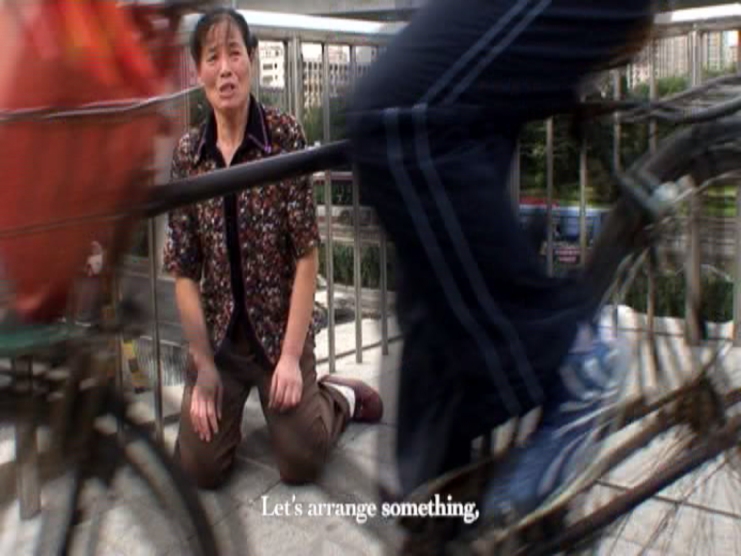
Meat and Three Veg 一葷三素
4:30pm
No Desire to Hide 海妖 (Zhu Rikun 朱日坤, 2021, 91min.)
Back in the early 2000s, a film student sought the director out on social media, asking: "Can you help me to get abroad and become famous?" This was Wu Haohao, later known in Chinese indie film circles for his low-cost, privately funded erotic and provocative productions. A few years ago, Wu contacted the director again, this time to ask how he could emigrate to the United States. Wu recounted his great ambitions and outlined what he would do once he made it abroad. Intrigued, the filmmaker started to film him and the people around him… (Best of the Fest Award, 2022 Finger Lakes Environmental Film Festival.)
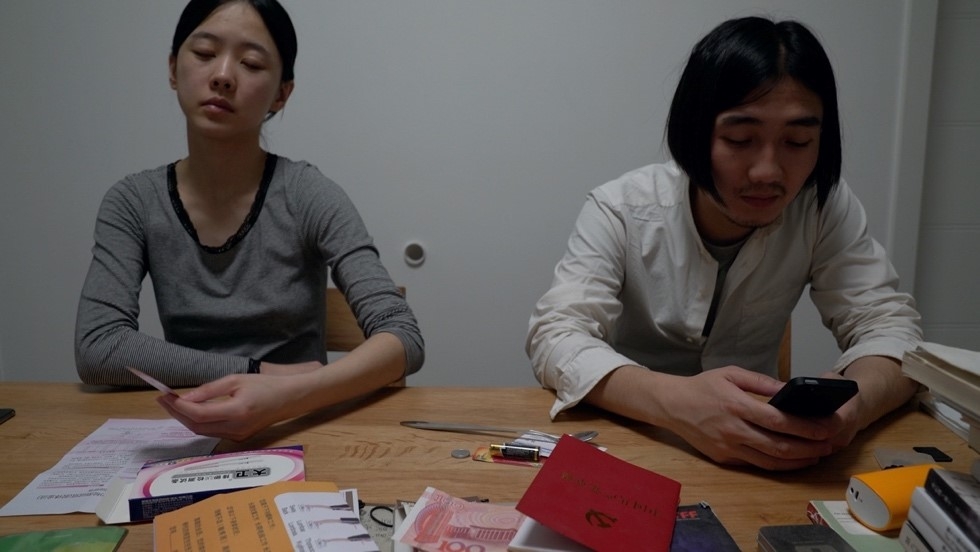
No Desire to Hide 海妖
About the filmmakers
CONG Feng 叢峰, born in Chengde, Hebei Province in 1972, is a filmmaker, writer, photographer and a member of the editorial collective of Film Auteur magazine. His major film works include: Doctor Ma’s Country Clinic, The Unfinished History of Life, Stratum 1: The Visitors, Rooms with Mao’s Images and Stratum 2: The Asthenosphere. His films have been shown in many film festivals such Berlin International Film Festival, Cinema Digital Seoul Film Festival, Yamagata International Documentary Film Festival, Hong Kong International Film Festival, Vienna International Film Festival, Taipei International Documentary Film Biennale. He won the NETPAC Award in the 57th Berlin International Film Festival, the Directors’ Guild of Japan Award at Yamagata Film Festival, and the Grand Award at Yunnan Multi Cultural Film Festival. His solo exhibition “We Have Never Been Modern” was held at Gucang Contemporary Art Museum in Lanzhou, 2020. He has also self-published two poetry collections.
CUI zi’en 崔子恩 is a leading Chinese independent filmmaker, writer, and critic. He lived in Beijing for a long time and is now based in North Florida, USA. A pathbreaking queer filmmaker, Cui has written, directed and produced nearly two-dozen fiction and non-fiction films, notably Enter the Clowns (2002), The Old Testament (2002), Night Scene (2004), We Are the …of Communism (2007), Queer China, Comrade China (2009). A prolific writer and critic, his fiction and critical works include Travel in Film (1993), Peach-colored Lips (1997), Uncle’s Secular Life (2003), Pseudo-Science Fiction Stories (2003), Memories of Light and Shadow(2005), and Big Dipper (2012). Cui is a co-founder of the Beijing Queer Film Festival.
Ikram Nurmehmet 伊克拉木 Lived in Urumqi, Xinjiang till he was 18 years old. Then he studied at TC MARMARA University, in Istanbul, where he majored in the Art of Cinema and TV and graduated in 2016. He now works and lives in Beijing.
Jing Yi 景一is a post-90er born and raised in Xinjiang. A graduate of Beijing Film Academy, his representative works include Bek (Kazakh); You Are Still a Calm Bride (Chinese); Manlika (Uyghur); and Bukowski (Sibe).
LI Dongmei 李冬梅 was born in Wushan, a rural mountainous town in Sichuang Province. After graduating from a university in Chongqing, she became an English teacher and later founded a private bilingual Kindergarten. Her passion for cinema led her to pursue filmmaking studies at Victorian College of Arts at University of Melbourne. In 2020, her directorial debut Mama was shortlisted for the Venice Day section of the 77th Venice International Film Festival. In the same year, she won the Best Film of Fei Mu Awards at the 4th Pingyao International Film Festival. In 2021, Mama also received the Ingmar Bergman International Debut Award at the 44th Gothenburg Film Festival, becoming the first woman and Asian director to receive this honor. Currently based in Shanghai, Li is a lecturer at Shanghai Vancouver Film School.
LI Xiaofei李消非 (b.1973) is a visual artist who lives and works in New Jersey and Shanghai. He graduated from Guangzhou Academy of Fine Arts and is the founder and director of the Creek Art Center (2004-2007) and Fei Contemporary Art Center (FCAC) Shanghai (2007-2015).
Li’s many award winning works, including the acclaimed Assembly Line Project, have been featured nationally and internationally in the 4th, 6th and 7th Bi-City Biennale of Urbanism/Architecture of Shenzhen and Hong Kong (2013, 2017 and 2019), the 10th Shanghai Biennale (2014), the 8th Berlin Biennale for Contemporary Art (2014), Barents Spektakel (2015), and the 3rd Taiwan International Video Art Exhibition (2012), the Kunstraum München, the Guangdong Times Museum, OCAT Xi’an (solo exhibition), the Centre Pompidou (Paris), the San Francisco Museum of Modern Art, the Seoul Museum of Art, FSRR (Turin), Rockbund Art Museum (Shanghai), and KW Berlin in group exhibitions. He received a 2022 Fellowship from the New Jersey State Council on the Arts. www.lixiaofeiart.com
LI Wei 李維 was born in Chongqing, Sichuang Province in 1994 and has been creating documentary films since 2014. His films Enclave (8th Reel China 2016) and Silence in the Dust have been selected in many film festivals and received the Independent Spirit Award at the Beijing Independent Film Festival and the Special Jury Award at the Taiwan International Documentary Film Festival. His works are also collected in many academic institutions.
OTAKE Eiko 尾竹永子, born and raised in Japan and a resident of New York since 1976, is a movement-based, interdisciplinary artist. She worked for more than 40 years as Eiko & Koma, but since 2014 has been working on her own projects: A Body in Places, The Duet Project, and I Invited Myself. Since the 1980s, she has also created a large number of media works, "dances for camera," and documentaries. Created in post-nuclear-disaster Fukushima over six visits, A Body in Fukushima, produced many photo exhibitions, performances, and a book publication. The feature-length film of the same title premiered at the Museum of Modern Art's Doc Fortnight Festival and was shown internationally in other film festivals in South America and Asia. eikootake.org
SHI Wenhua史文華 is an Associate Professor of Art, College of Liberal Arts, University of Massachusetts, Boston. He pursues a poetic approach to moving image making, and investigates conceptual depth in film, video, interactive installations, and sound sculptures. His work has been presented at museums, galleries, and film festivals, including International Film Festival Rotterdam, European Media Art Festival, Athens Film and Video Festival, Ann Arbor Film Festival, Pacific Film Archive, West Bund: A Biennale of Architecture and Contemporary art (Shanghai), Shenzhen & Hong Kong Bi-City Biennale of Urbanism, and the Arsenale of Venice in Italy. He has received awards including from the New York Foundation for the Arts and the New York State Council on the Arts. His recent projects were supported by the LEF Foundations and Massachusetts Cultural Council. He is the founder and one of the curators of RPM Fest, an experimental film and media festival (https://revolutionsperminutefest.org).
Ta Gya 扎加 is a graduate from Soochow University’s School of Media and Communications, majoring in Radio and Television.
Tan Tan 炭炭 is an intermedia artist who currently lives and works in China while a doctoral candidate in Studies in Performing Arts & Media, Ghent University, Belgium. Her oeuvre covers experimental film/video art, performance/theater, music/sound art, installation, cyber art, etc. Surreal spaces, social intervention, and spiritual healing are the core topics in her work. She took part in numerous art events internationally, such as the 60th Berlin International Film Festival, International Film Festival Rotterdam, 43rd Tampere Film Festival, Images Festival (Canada), 35th Göteborg International Film Festival, Venize Biennale, Chinese Women Artists Video Art Festival (Mexico), Beijing Fringe Festival (China), Wuzhen Theatre Festival (China), Waha Music Festival (Romania), and Creative China Festival at La Mama Experimental Theater (New Yok). Her works are collected by SFE TV (German contemporary art channel), Beijing Li Xianting Film Foundation, and Wuhan Art Museum.
YANG Xiao 楊瀟, born in Guilin, Guangxi Province, graduated from Shanghai University and now lives in Shanghai. His films include The Suspended Step (2013), Chronicle of a Durian (2017) and The Mountains Sing (2012), which have been exhibited in several international film festivals at home and abroad, including in Paris, Tours, Hawaii, Washington DC, Busan, Beijing, Xining, Nanjing, Hangzhou, and Guangzhou. As an assistant director and storyboard artist, he participated in the productions of The Wild Goose (2019) and Kaili Blues (2014). He also engaged in film editing for The Fall (2018) and Uncle and House (2018).
Shae Xu 許以 (pinyin: Xǔ Yǐ), born in 1989, is a Shanghai filmmaker based in New York. Xu studied Art History at UC Santa Barbara and worked in the Chinese contemporary art realm before becoming a filmmaker. Her photography and video works were seen in the galleries, and her narrative films unveil a feminist’s concern in a fast-growing China. Xu is a Berlinale Talents/Talents Tokyo alumni, and holds a MFA in Film Directing from Columbia University. She is the winner of the DGA’s 2020 Student Film Awards for Outstanding Directorial Achievement in Women’s category. https://www.shaexu.com/
WEN Hui 文慧 is a pioneer of Chinese contemporary dance theater. A versatile artist, she is a choreographer, dancer, and creates documentary films and installations. In 1994, she founded China’s first independent dance theater company, Living Dance Studio. In her work The Report on Giving Birth (1999), she interviewed a group of women about their experiences of childbirth, and used the body as a strategy of resistance to show the cultural and everyday complexity of women during that particular time. Red (2015) is a reflection on the model opera as a political and cultural symbol and its role in the collective consciousness during China’s Cultural Revolution. Her latest work, I am 60 (2021), has been performed in several cities in Europe. Wen Hui’s work has also been exhibited across the world, including the 56th Venice Biennale, a solo exhibition by Yvonne Rainer and Wen Hui at the Beijing Inside-out Art Museum in 2019, and the Guangzhou Image Triennial 2021. In 2021, she received the official Order of Merit of the Federal Republic of Germany, Goethe Medal.
Zhao Dayong 趙大勇 lives in New York. He started out as a painter, and turned to directing commercials in the late 1990s. He became an independent filmmaker in 2004, making both documentaries and narrative films. His documentary works include Street Life (2007), Ghost Town (2008) and My Father's House (2010). In 2010 he directed the feature film The High Life, and the experimental short film Rough Poetry. These were followed by The Shadow Days (2014). His works have often been shortlisted for international film festivals and received several awards.
ZHOU Hao 周豪 is a filmmaker from rural China, now based in the rural United States. An alum of the Cinéfondation Résidence and Berlinale Talents, Zhou wrote and directed an indie feature, The Night (2014), which premiered at the Berlinale Panorama. Frozen Out won the Gold Medal (experimental category) of the 48th Student Academy Awards. Currently Zhou is at work on multiple projects in both nonfiction and narrative genres, while teaching as an assistant professor of film at Kenyon College. https://www.haozhoustudio.com/
ZHU Rikun 朱日坤, born in Guangdong Province, graduated from Guanghua School of Management, Peking University in 2000. In 2001 he founded Fanhall Films, producing and distributing Chinese independent films. In 2003 Zhu established DOChina, one of the earliest independent film festivals in China. He is the co-founder and program director of Beijing Independent Film Festival 2006-2011. From 2012, he began to make his own films. His first short documentary film The Questioning (2013) won Special Mention at Cinema du Reel,
Best Short Documentary at Festival Dei Popoli, Grand Prize at Glasgow Short Film Festival, and Special Mention at ifva Hong Kong. His other films include The Dossier (2014), Dust (2014), Welcome (2016), Anni (2018), and No Desire to Hide (2021). Zhu has been a jury member for Hong Kong International Film Festival, Locarno Film Festival, CinDi-Seoul Digital Cinema Film Festival. He is the chief editor of cinema website www.fanhall.com.